Staubgold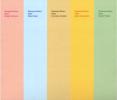
The "Plays" project came out over the course of 2001 on Bottrop-Boy(two 7" singles) and Staubgold (three mini-LPs). Each release in theseries consisted of two tracks. This CD is a handy way to get them allat once, and perhaps to understand the project more coherently. Whilethere's little information in the insert for those of us who can't readGerman, it's not hard to guess, given Ehlers's past form—particularlyhis membership of the defunct high-concept Mille Plateaux actAutopoieses—that there'll be some thinking behind it.
The Staubgold site helpfully offers this quotation from Ehlers: "The'Plays' series deals with 'reference' ... Everyone is sampling;sampling is the figure of historic devices in digital music. My idea isnot to sample, but to refer to historic places and figures." And so herefers not only to musicians (Albert Ayler, Cornelius Cardew, andRobert Johnson) but to actor and director John Cassavetes, and theenigmatic Hubert Fichte, who is variously documented on the web as aqueer theorist, an anthropologist, and a beat poet.
These referential intentions work well for the most part, reversing theusual process of listening to music based on sampled material: insteadof noticing or just assuming I'm hearing "quotations" from other music,I've tried to decode it using my knowledge—however pitiful at times—ofits subject.
Thankfully, though it may enrich it, knowledge of the five subjects'biographies is not essential to appreciating the music. "PlaysCornelius Cardew", one of the 7"s, and "Plays John Cassavetes", one ofthe mini-LPs, are basically drone and loop-based, using organs andviolins—sometimes as walls of sound, others more sparsely. Ehlers takesa much more interesting approach on the "Plays Albert Ayler" and "PlaysHubert Fichte" mini-LPs, confidently subjecting raw recordings to hisdigital knife. These are the must-listen highlights of the CD. "PlaysHubert Fichte" puts lazily picked guitar from Joseph Suchy in thebackground of a night chorus of buzzing and chirping modifications,like improvisation overheard on a hot evening. The meticulouslyarranged "Plays Albert Ayler" uses similar processing techniques but,being based on Anka Hirsch's cello and other orchestralinstrumentation, is more austere and graceful. You may have heard thissort of thing before, but here it's done with a taste and judgmentthat's far from common.
The CD closes with the "Plays Robert Johnson" 7", one side processedguitar fumbling, and the other a micro-house funk-out that's funny butdefinitely out of character with the rest of the series. Nonetheless,it adds to the diversity of this occasionally inspired collection,which confirms Ehlers as one of the best musicians working at thetheory-heavy end of the post-digital scene.
samples:
 The vast worldwide sea of laptop and desktop musicians has simply become far too predictable with atonal noise-bursts and rhythmic clicking. While the revisit of Klang Krieg's 'American Breakbeat' album has some wonderful highlights, it's almost way too excessive at a staggering 34 tracks. Presented here are remixes and reinterpretations of the original release—29 contributions from North American electronic artists—by electronic artists from (almost*) elsewhere in the world. [*Note to Klang Krieg: Mexico is still part of North America.]
The vast worldwide sea of laptop and desktop musicians has simply become far too predictable with atonal noise-bursts and rhythmic clicking. While the revisit of Klang Krieg's 'American Breakbeat' album has some wonderful highlights, it's almost way too excessive at a staggering 34 tracks. Presented here are remixes and reinterpretations of the original release—29 contributions from North American electronic artists—by electronic artists from (almost*) elsewhere in the world. [*Note to Klang Krieg: Mexico is still part of North America.]


 "Hey you! Come on ever here! You've just been chosen!" Dance punkwaving away from retro futurist flourescent arcades of dayglo nothingbrought into the radioactive bubblegum world by the TV eye trio Enon -bright corners of 'High Society' seem rerouted from obvious drug pun.Initially "Old Dominion" rocket-rushes from speakers in chunky rockin'populous frenzy, twisting and spitting tuneful as if atomic men hadshaved the cartoon kitten, and brought on irreal visions of facelessladies walking poodles. These are the finest rockpops tune vibrationsto wobble my eardrums since that Wire EP you should all have heard bynow. You know John Schmersal used to be guitarist in that greatBrainiac band from Dayton, Ohio that stopped just as they peaked whensinger Tim Taylor's car crashed and killed him? John's been busy sincethen, relocating to do the Enon thing in New York, with a clutch ofseven inches and between two and five albums depending on which way youcut it. To find out which way you'd cut the cake, visit the band'shyper TV hellnation website (
"Hey you! Come on ever here! You've just been chosen!" Dance punkwaving away from retro futurist flourescent arcades of dayglo nothingbrought into the radioactive bubblegum world by the TV eye trio Enon -bright corners of 'High Society' seem rerouted from obvious drug pun.Initially "Old Dominion" rocket-rushes from speakers in chunky rockin'populous frenzy, twisting and spitting tuneful as if atomic men hadshaved the cartoon kitten, and brought on irreal visions of facelessladies walking poodles. These are the finest rockpops tune vibrationsto wobble my eardrums since that Wire EP you should all have heard bynow. You know John Schmersal used to be guitarist in that greatBrainiac band from Dayton, Ohio that stopped just as they peaked whensinger Tim Taylor's car crashed and killed him? John's been busy sincethen, relocating to do the Enon thing in New York, with a clutch ofseven inches and between two and five albums depending on which way youcut it. To find out which way you'd cut the cake, visit the band'shyper TV hellnation website (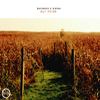 "Our Noise"? Anything but. From the opening notes of this release, Iwas sold. This is the debut full length from Hermann and Kleine,recorded in their bedrooms in Berlin. This is really un-German soundingelectronic music, created with laptops and samples, and named"plinkerpop" as a genre, I'm told. True, it does have its moments ofpop splendor, but I don't remember enjoying an electronic record thismuch since Four Tet's "Pause". It's not as boring as Kleine's work onhis own tends to be these days, that's for sure. The beats are meaty inareas, simple in others, and the keyboards and samples laid on top ofthem are unobtrusive, often engrossing, and totally fresh. Each trackstands on its own, and has a life of its own, even though they may havesimilar structures or sound effects. The album opener, 'Drop', is aperfect indicator of what the record is going to be about. A simplebeat starts the track, then the bassline joins, and then distortedguitar. Before you know it, you're completely lost in a trance, movingalong to the music like you don't know what's hit you. And it neverstops or disappoints. The full beat eventually drops in on 'Drop',paving the way for the harder beats you'll hear on later tracks, butfirmly engrained in the groove of the moment. 'Her Tune' starts outsimilarly deceptive, with simple keyboards, until the big beat joinsin. It's all very impressive and easy to listen to for a variety ofactivities. Elsewhere, shuffling beats and big loud rock guitars areused to get the point across, or, as on 'Shuttle', a voice is heard onoccasion, although extremely processed and edited. When it was allover, I started it up to listen to it a second time. A great firstfull-length release from this unlikely duo.
"Our Noise"? Anything but. From the opening notes of this release, Iwas sold. This is the debut full length from Hermann and Kleine,recorded in their bedrooms in Berlin. This is really un-German soundingelectronic music, created with laptops and samples, and named"plinkerpop" as a genre, I'm told. True, it does have its moments ofpop splendor, but I don't remember enjoying an electronic record thismuch since Four Tet's "Pause". It's not as boring as Kleine's work onhis own tends to be these days, that's for sure. The beats are meaty inareas, simple in others, and the keyboards and samples laid on top ofthem are unobtrusive, often engrossing, and totally fresh. Each trackstands on its own, and has a life of its own, even though they may havesimilar structures or sound effects. The album opener, 'Drop', is aperfect indicator of what the record is going to be about. A simplebeat starts the track, then the bassline joins, and then distortedguitar. Before you know it, you're completely lost in a trance, movingalong to the music like you don't know what's hit you. And it neverstops or disappoints. The full beat eventually drops in on 'Drop',paving the way for the harder beats you'll hear on later tracks, butfirmly engrained in the groove of the moment. 'Her Tune' starts outsimilarly deceptive, with simple keyboards, until the big beat joinsin. It's all very impressive and easy to listen to for a variety ofactivities. Elsewhere, shuffling beats and big loud rock guitars areused to get the point across, or, as on 'Shuttle', a voice is heard onoccasion, although extremely processed and edited. When it was allover, I started it up to listen to it a second time. A great firstfull-length release from this unlikely duo.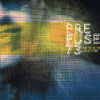 This four-track EP, the third release from Scott Herren on the Warp label under his Prefuse 73 alias, makes for a broad yet fleeting assortment of instrumental HipHop inspired music. The absence of vocalists and/or MCs has the listener focused on the behind the scenes make-up of some great compositions. Not to say that the right vocalists and/or MCs wouldn't enhance things, as evident on 2001's "Vocal Studies + Uprock Narratives."
This four-track EP, the third release from Scott Herren on the Warp label under his Prefuse 73 alias, makes for a broad yet fleeting assortment of instrumental HipHop inspired music. The absence of vocalists and/or MCs has the listener focused on the behind the scenes make-up of some great compositions. Not to say that the right vocalists and/or MCs wouldn't enhance things, as evident on 2001's "Vocal Studies + Uprock Narratives."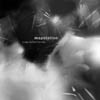 To Rococo Rot's Stefan Schneider is Mapstation, the solo project inwhich the bassist focuses more on the layering of electro sounds andtextures. At times minimalist in approach, this third disc continues inthe direction of an interesting compositional style. The introductionof what at first appears as simple sounding ideas are subtly built uponusing various rhythms, synth patches and digital found sounds untilthey have formed a beautiful soundscape. Each of the disc's eleventracks has a unique development and outcome. "Two Landscapes" openswith deep and lilting synth tones which act as a percussive elementwhile various patches drift in and out stating a general melody andmotif. "More People Than Two" is comprised of a lullaby-soundingrepetitive keyboard with a bassline that weaves nicely into the mix ofethereal chords and distant pulses. Reggae singer Ras Donovan guests onthe tracks "New Direction" (released as a 12") and "Wake Up," whichcould be seen as minimalist dub, maintaining the rhythmic keyboard ofthe style. This is definitely one for the headphones.
To Rococo Rot's Stefan Schneider is Mapstation, the solo project inwhich the bassist focuses more on the layering of electro sounds andtextures. At times minimalist in approach, this third disc continues inthe direction of an interesting compositional style. The introductionof what at first appears as simple sounding ideas are subtly built uponusing various rhythms, synth patches and digital found sounds untilthey have formed a beautiful soundscape. Each of the disc's eleventracks has a unique development and outcome. "Two Landscapes" openswith deep and lilting synth tones which act as a percussive elementwhile various patches drift in and out stating a general melody andmotif. "More People Than Two" is comprised of a lullaby-soundingrepetitive keyboard with a bassline that weaves nicely into the mix ofethereal chords and distant pulses. Reggae singer Ras Donovan guests onthe tracks "New Direction" (released as a 12") and "Wake Up," whichcould be seen as minimalist dub, maintaining the rhythmic keyboard ofthe style. This is definitely one for the headphones. Theelectro of Ersatz Audio's 'Misery Loves Company' comp is pretty damnthin. I don't really understand why, because all these artists (Adult.,G.D.Luxxe, Solvent, Gold Chains, etc) should be interested in qualityof sound, since they are, essentially, electronic musicians. But thebeats on this CD are SCRAWNY, and I don't know if it's the minimalaspect of these tracks (most songs are just a drum machine and one ortwo synth lines, with vox), or if Ersatz needs to start getting theirCDs mastered somewhere else (the Adult. full-length has a similar lackof punch). Or perhaps my ear is getting a little too picky. In anycase, sound quality aside, this compilation is fairly enjoyable butsomewhat forgettable. There's nothing groundbreaking going on here, but'Misery Loves Company' has done a pretty good job of compiling artistsfrom America and Europe whose approach to their drum machines andsequencers are roughly on the same wavelength: simpleretro-dance-electro, with a big nod to the Detroit sound (and a smallnod to Miami) and a slightly ironic presense. The obvious names standout with some of the best tracks (DMX Krew's "Touch Me" and Lowfish'sIDM-electro instrumental "Dead House"), but there are some intriguingnew names here, including Detroit's Tamion 12 Inch, whose "Thin BoysMurdered" straddles the line between being really irritating andstrangely charming. Other bigger names fail to deliver quality tracks,most notably Solvent & Skanfrom's collaboration "Expect Delays" andGold Chains "Could Care Less," which is the purported inspiration forthis disc. At its worst, this comp is a kind of redundant after awhile, as every song sounds pretty much the same. But most of thismusic doesn't take itself too seriously, thankfully, and overall it'spretty non-intrusive. I'd probably put it on at a party. Or maybe playit really loud while taking a nap.
Theelectro of Ersatz Audio's 'Misery Loves Company' comp is pretty damnthin. I don't really understand why, because all these artists (Adult.,G.D.Luxxe, Solvent, Gold Chains, etc) should be interested in qualityof sound, since they are, essentially, electronic musicians. But thebeats on this CD are SCRAWNY, and I don't know if it's the minimalaspect of these tracks (most songs are just a drum machine and one ortwo synth lines, with vox), or if Ersatz needs to start getting theirCDs mastered somewhere else (the Adult. full-length has a similar lackof punch). Or perhaps my ear is getting a little too picky. In anycase, sound quality aside, this compilation is fairly enjoyable butsomewhat forgettable. There's nothing groundbreaking going on here, but'Misery Loves Company' has done a pretty good job of compiling artistsfrom America and Europe whose approach to their drum machines andsequencers are roughly on the same wavelength: simpleretro-dance-electro, with a big nod to the Detroit sound (and a smallnod to Miami) and a slightly ironic presense. The obvious names standout with some of the best tracks (DMX Krew's "Touch Me" and Lowfish'sIDM-electro instrumental "Dead House"), but there are some intriguingnew names here, including Detroit's Tamion 12 Inch, whose "Thin BoysMurdered" straddles the line between being really irritating andstrangely charming. Other bigger names fail to deliver quality tracks,most notably Solvent & Skanfrom's collaboration "Expect Delays" andGold Chains "Could Care Less," which is the purported inspiration forthis disc. At its worst, this comp is a kind of redundant after awhile, as every song sounds pretty much the same. But most of thismusic doesn't take itself too seriously, thankfully, and overall it'spretty non-intrusive. I'd probably put it on at a party. Or maybe playit really loud while taking a nap.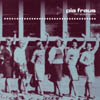 I really do sincerely hate name-dropping in music reviews, however,it's impossible to get around this one, like a dead animal on thesidewalk you simply can't ignore and have to step over. To theircredit, this Estonian group has come closer than anyone in making analbum sound just like 1990's 'Loveless' by My Bloody Valentine fortheir second full-lengther, and it's hardly surprising that the labelto release this mentions Slowdive in over half of their band's webpages on their site. It's so strikingly similar from the pretty fuzz,through the male and female soft vocals, down to the usage of a burieddrum machine on the final cuts. Give them a break, however, as eachmember was only 9 years old in 1990, therefore the chances of them everseeing a band live who has had such an apparently profound influence onthem are quite slim. The band sounds amazingly direct and sincere,however, and the tunes are indeed catchy and full of proverbialdistorted guitar, in a mesmerising fuzz like the glaze covering youreyes on a hot, cloudy, yet rainless day. Much like a number of releaseson Claire, songs can easily be picked apart and stand strong on theirown amidst an ocean of variety but a collection of ten of these in arow with so much in common can be only be, at worst, slightlycumbersome to wade through.
I really do sincerely hate name-dropping in music reviews, however,it's impossible to get around this one, like a dead animal on thesidewalk you simply can't ignore and have to step over. To theircredit, this Estonian group has come closer than anyone in making analbum sound just like 1990's 'Loveless' by My Bloody Valentine fortheir second full-lengther, and it's hardly surprising that the labelto release this mentions Slowdive in over half of their band's webpages on their site. It's so strikingly similar from the pretty fuzz,through the male and female soft vocals, down to the usage of a burieddrum machine on the final cuts. Give them a break, however, as eachmember was only 9 years old in 1990, therefore the chances of them everseeing a band live who has had such an apparently profound influence onthem are quite slim. The band sounds amazingly direct and sincere,however, and the tunes are indeed catchy and full of proverbialdistorted guitar, in a mesmerising fuzz like the glaze covering youreyes on a hot, cloudy, yet rainless day. Much like a number of releaseson Claire, songs can easily be picked apart and stand strong on theirown amidst an ocean of variety but a collection of ten of these in arow with so much in common can be only be, at worst, slightlycumbersome to wade through. The "Plays" project came out over the course of 2001 on Bottrop-Boy(two 7" singles) and Staubgold (three mini-LPs). Each release in theseries consisted of two tracks. This CD is a handy way to get them allat once, and perhaps to understand the project more coherently. Whilethere's little information in the insert for those of us who can't readGerman, it's not hard to guess, given Ehlers's past form—particularlyhis membership of the defunct high-concept Mille Plateaux actAutopoieses—that there'll be some thinking behind it.
The "Plays" project came out over the course of 2001 on Bottrop-Boy(two 7" singles) and Staubgold (three mini-LPs). Each release in theseries consisted of two tracks. This CD is a handy way to get them allat once, and perhaps to understand the project more coherently. Whilethere's little information in the insert for those of us who can't readGerman, it's not hard to guess, given Ehlers's past form—particularlyhis membership of the defunct high-concept Mille Plateaux actAutopoieses—that there'll be some thinking behind it. After 1997's unimaginatively entitled third album, Download planned onreleasing two EPs ('Moth' and 'Resilient' if memory serves) that nevercame to be. More than likely some if not all of the material for thosehas resurfaced here, along with 'Effector' outtakes, on the thirdinstallment of the "From the Vault" series. From the get go I'mimpressed as these are finished tracks on par with or better than thosethat made the official releases, unlike the lifeless doodlings of thefirst Vault disc "Inception". "Sticky Glandstin" has all theessentials: a jittery bass heavy beat, bizarre samples and sounds andan amniotic atmosphere smeared across the stereo field. The next track"Dakota" is the first jaw dropper when it shifts gears and glides intoan elegant synthetic wash. Rhythmically "The Itch of Trepanning"swaggers and "Manmade" assaults while "Nor" caresses (it too dissolvinginto a howl enhanced ambient bliss midway through). "Walking, Talking"also beats you pleasantly senseless with an intricate mesh of metallicpercussion and electronic squelches over a groovy bass lead. "D.O.G."and "P.U.P." reference Key's longtime feline companions to which this45 minute collection is dedicated. With that in mind both take on asomewhat somber but thankful air, the rhythms tamed down some to focusmore on melodic feel. If you're remotely a fan of post-'The Eyes ofStanley Pain' Download, 'III Steps Forward' is very worth your while.
After 1997's unimaginatively entitled third album, Download planned onreleasing two EPs ('Moth' and 'Resilient' if memory serves) that nevercame to be. More than likely some if not all of the material for thosehas resurfaced here, along with 'Effector' outtakes, on the thirdinstallment of the "From the Vault" series. From the get go I'mimpressed as these are finished tracks on par with or better than thosethat made the official releases, unlike the lifeless doodlings of thefirst Vault disc "Inception". "Sticky Glandstin" has all theessentials: a jittery bass heavy beat, bizarre samples and sounds andan amniotic atmosphere smeared across the stereo field. The next track"Dakota" is the first jaw dropper when it shifts gears and glides intoan elegant synthetic wash. Rhythmically "The Itch of Trepanning"swaggers and "Manmade" assaults while "Nor" caresses (it too dissolvinginto a howl enhanced ambient bliss midway through). "Walking, Talking"also beats you pleasantly senseless with an intricate mesh of metallicpercussion and electronic squelches over a groovy bass lead. "D.O.G."and "P.U.P." reference Key's longtime feline companions to which this45 minute collection is dedicated. With that in mind both take on asomewhat somber but thankful air, the rhythms tamed down some to focusmore on melodic feel. If you're remotely a fan of post-'The Eyes ofStanley Pain' Download, 'III Steps Forward' is very worth your while.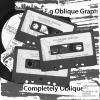 Prior to one hundred and forty-some (and counting) releases asMuslimgauze, Bryn Jones was known as E.g Oblique Graph. This limitededition set of 201 collects all of the tracks from the very rarecassette and vinyl releases: 1982's 'Extended Play', 'Piano Room' and'Triptych' and 1983's 'Inhalt'. What's on these two black CD-Rs bearslittle to no resemblance to trademark Muslimgauze. It's rather sparseand primal electronic music with a DIY attitude typical of the late'70s and early '80s. Jones plunked about and droned on synths, mixed invarious tape recordings and some pseudo-beats and lets it all churnwithin effects. The more dark or abstract the more interesting: marredchoirs and speech, reversed and otherwise manipulated tapes, electricdischarges, sonar-like pings, seemingly random juxtapositions, etc."Human Rights" is probably the first track (in title, at least) toaddress a socio-political concern while the final (and my favorite)track of disc one, the 20 plus minute "Piano Room", seems to be thefirst to utilize a drum machine amongst its varied movements. Israel's1982 invasion of Lebanon brought about a paradigm shift in Jones'inspiration, as evidenced by the titles of the two tracks that made upthe "Inhalt" cassette: "Islamic Koran In Camera Dome" and "Rapid WhiteFlag In Snapshot Blur". The blood is beginning to boil in the former asan upfront rhythm dominates most of the nearly nine minutes. Soon afterthis began Muslimgauze. 'Completely Oblique' isn't all that excitingreally, more of a historical footnote for Muslimgauze collectors.Though I do have a soft spot for this sort of amateur music making,having done it myself for a few years, I don't even listen to my owntapes anymore. The liner notes make it pretty clear that Jones wasn'ttoo interested in revisiting this or other past work either. So whileI'm grateful for the chance to finally hear it, I also have to wonderif re-issuing it was the right thing to do.
Prior to one hundred and forty-some (and counting) releases asMuslimgauze, Bryn Jones was known as E.g Oblique Graph. This limitededition set of 201 collects all of the tracks from the very rarecassette and vinyl releases: 1982's 'Extended Play', 'Piano Room' and'Triptych' and 1983's 'Inhalt'. What's on these two black CD-Rs bearslittle to no resemblance to trademark Muslimgauze. It's rather sparseand primal electronic music with a DIY attitude typical of the late'70s and early '80s. Jones plunked about and droned on synths, mixed invarious tape recordings and some pseudo-beats and lets it all churnwithin effects. The more dark or abstract the more interesting: marredchoirs and speech, reversed and otherwise manipulated tapes, electricdischarges, sonar-like pings, seemingly random juxtapositions, etc."Human Rights" is probably the first track (in title, at least) toaddress a socio-political concern while the final (and my favorite)track of disc one, the 20 plus minute "Piano Room", seems to be thefirst to utilize a drum machine amongst its varied movements. Israel's1982 invasion of Lebanon brought about a paradigm shift in Jones'inspiration, as evidenced by the titles of the two tracks that made upthe "Inhalt" cassette: "Islamic Koran In Camera Dome" and "Rapid WhiteFlag In Snapshot Blur". The blood is beginning to boil in the former asan upfront rhythm dominates most of the nearly nine minutes. Soon afterthis began Muslimgauze. 'Completely Oblique' isn't all that excitingreally, more of a historical footnote for Muslimgauze collectors.Though I do have a soft spot for this sort of amateur music making,having done it myself for a few years, I don't even listen to my owntapes anymore. The liner notes make it pretty clear that Jones wasn'ttoo interested in revisiting this or other past work either. So whileI'm grateful for the chance to finally hear it, I also have to wonderif re-issuing it was the right thing to do.
